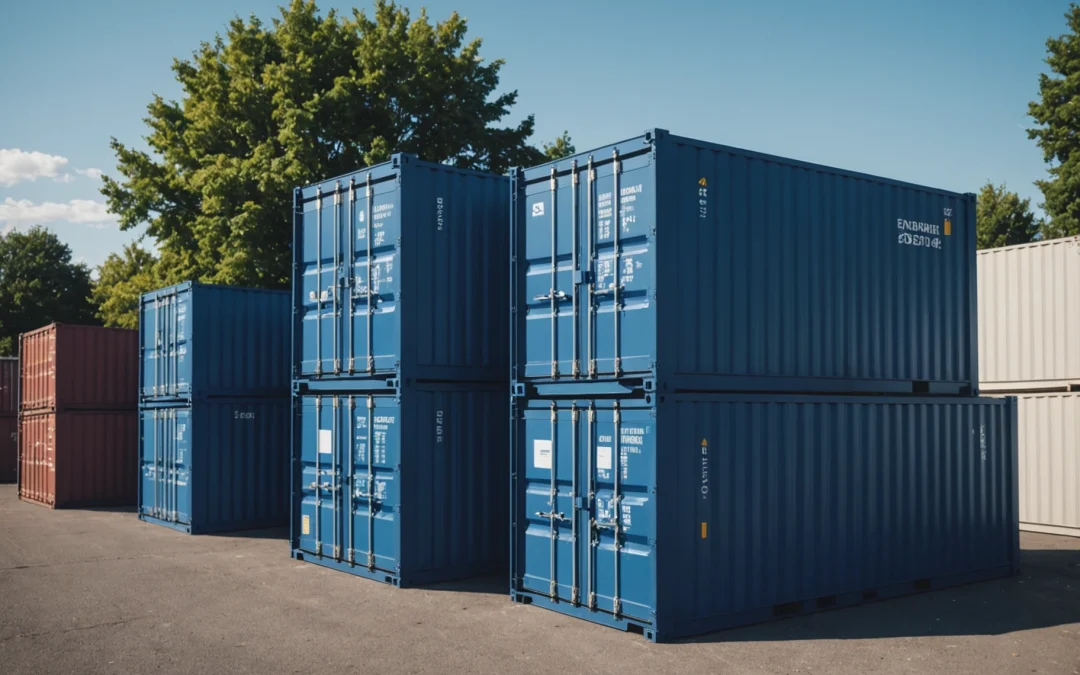The Comprehensive Guide to Choosing the Right Rental Storage Container for Your Needs
Are you in need of extra space for your belongings, tools, or inventory? Whether you’re managing a construction project, relocating, decluttering your home, or seeking secure storage for your business, rental storage containers offer a versatile and cost-effective solution. However, with such a wide variety of storage containers for rent, making the right choice can be daunting. This comprehensive guide will walk you through everything you need to know about selecting the ideal rental storage container for your specific requirements, ensuring your items remain safe, accessible, and organized.
We’ll cover the different types of containers available, key features to look for, sizing considerations, security and access options, placement logistics, and how to choose a reputable rental company. By the end of this guide, you’ll be equipped with all the knowledge you need to confidently rent the perfect storage container for your unique needs.
What Are Rental Storage Containers?
Rental storage containers, also known as portable storage units or shipping containers, are large, secure, and weather-resistant boxes designed to store and transport goods. Originally used for shipping cargo overseas, these containers have found a new life as flexible storage solutions for businesses, homeowners, and organizations. They come in a range of sizes and configurations and can be delivered directly to your location for temporary or long-term use.
Their robust construction, mobility, and adaptability make storage containers an increasingly popular choice for anyone who needs extra space without the commitment of permanent structures. To get a solid foundation, you can learn more about the engineering and uses of shipping containers in modern logistics and storage.
Types of Rental Storage Containers
Before choosing a rental storage container, it’s crucial to understand the available types and their intended uses. Each type offers unique benefits and is suited to particular applications.
Standard Storage Containers
These are the most common rental containers, typically made of steel, and available in sizes such as 20, and 40 feet in length. Standard containers are ideal for general storage needs, including household items, furniture, files, inventory, and equipment. They provide excellent weather resistance, security, and durability.
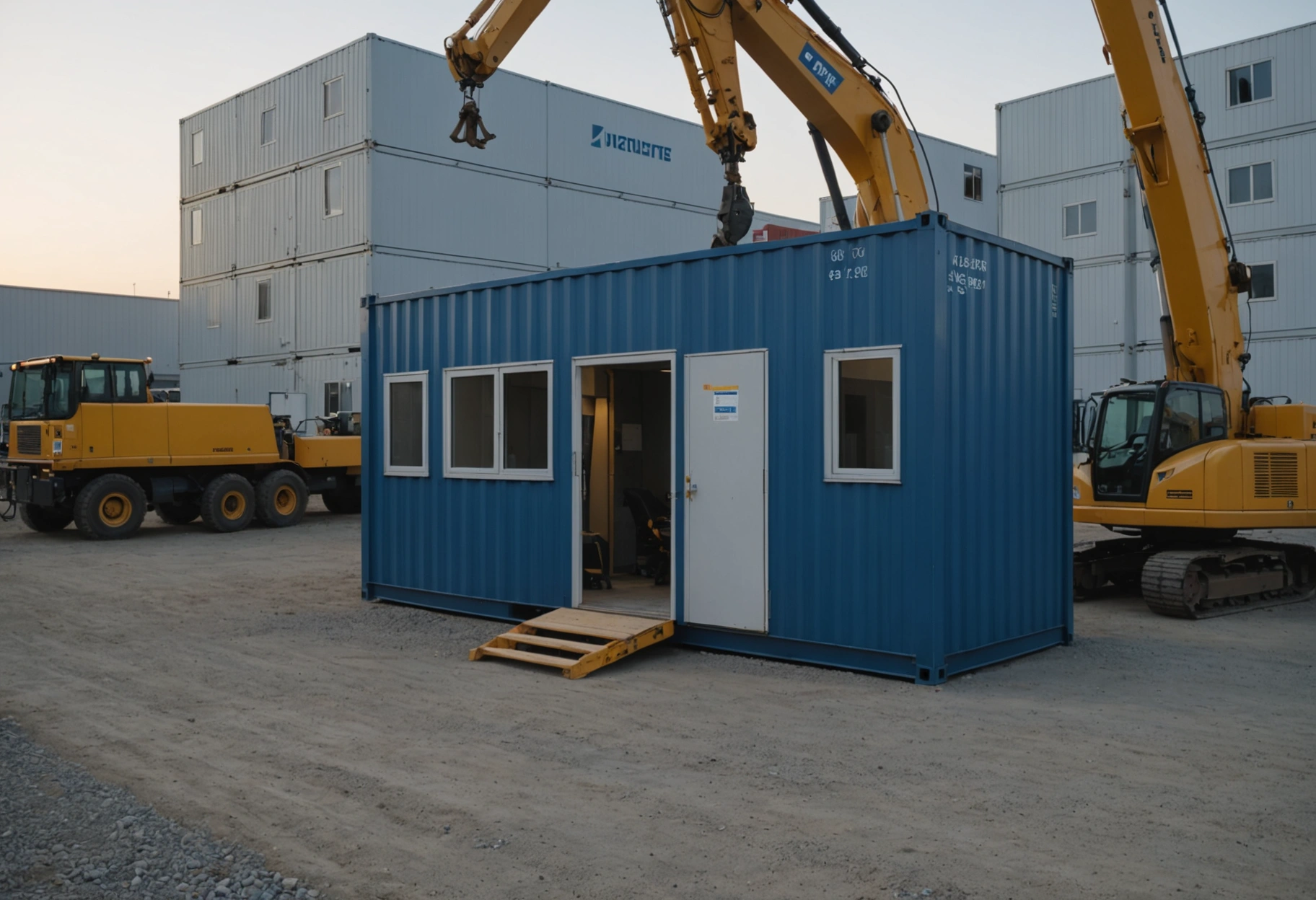
High Cube Containers
High cube containers are similar to standard containers but offer an extra foot of height, making them perfect for storing bulky or tall items. This additional vertical space can be invaluable for businesses with oversized equipment or for those who want to maximize storage efficiency.
Office Containers
For job sites or events, office containers provide a secure, mobile workspace. These containers are outfitted with windows, doors, lighting, and sometimes HVAC, allowing you to set up a temporary or semi-permanent office wherever you need it.
How to Determine the Right Size
Choosing the appropriate size for your rental storage container is one of the most important decisions in the process. A container that’s too small will require you to rent additional units or leave items out, while an oversized container can waste space and money.
Popular Storage Container Sizes
- 10-foot Containers: Best for small moves, document storage, seasonal items, or limited site space.
- 20-foot Containers: Common for residential moves, small business storage, or construction equipment. Offers about 1,170 cubic feet of space.
- 40-foot Containers: Ideal for large-scale storage, commercial inventory, or major renovation projects. Provides around 2,350 cubic feet.
To estimate the size you need, take inventory of your items and consider their dimensions. Stackability is also a factor—items that can be safely stacked may require less floor space. For a more scientific approach, consult this guide on estimating storage unit sizes based on your belongings.
Additional Size Considerations
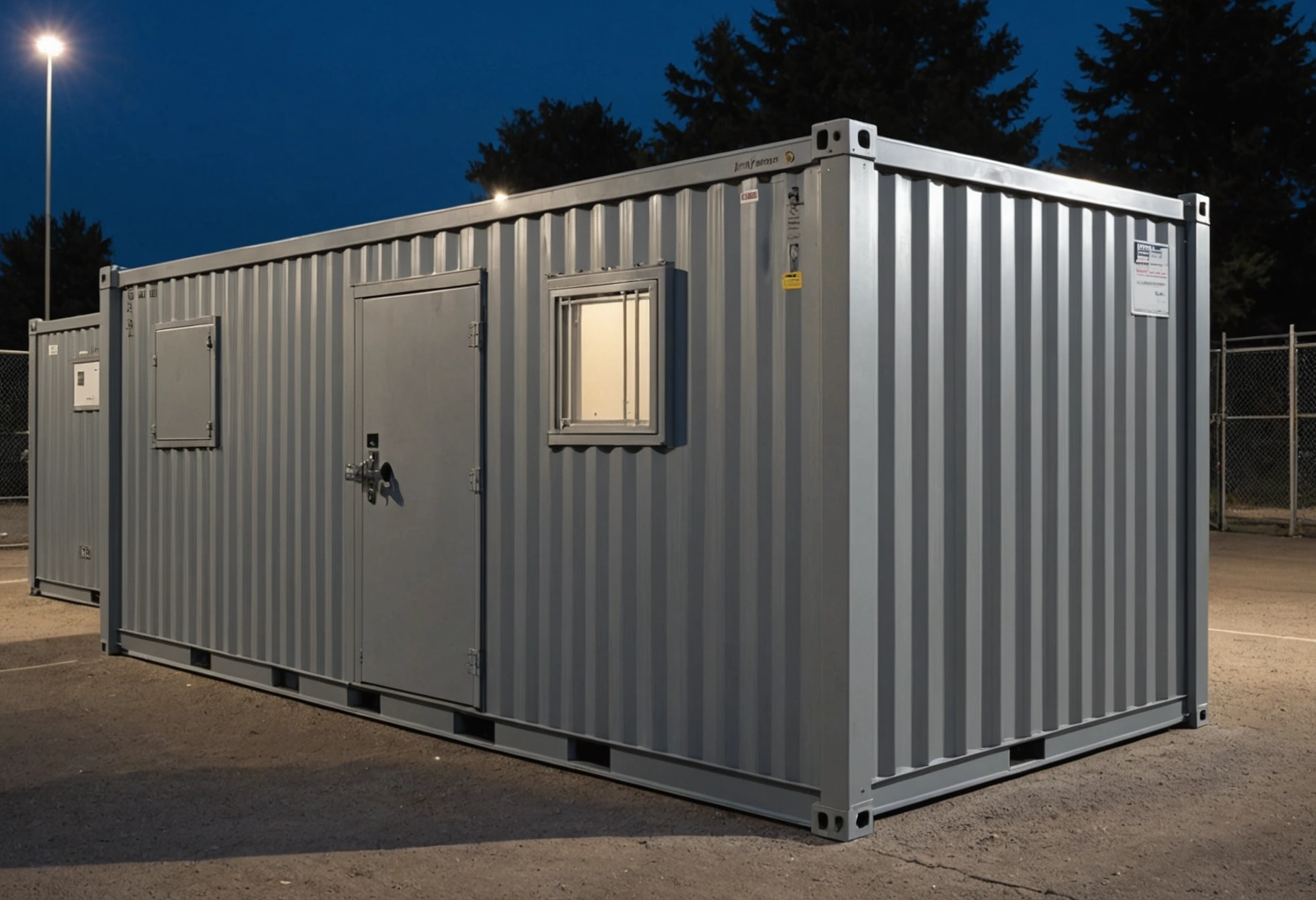
Beyond the physical size, think about how you’ll access your goods. If you plan to retrieve items frequently, leave space for walkways inside the container. If you’re storing large machinery or vehicles, be sure the container’s doors are wide enough for easy access.
Security and Safety Features
One of the main reasons people turn to rental storage containers is their robust security. But not all containers offer the same level of protection. Here are the key security features to look for:
Locking Mechanisms
Look for containers with heavy-duty, tamper-resistant lockboxes that shield padlocks from bolt cutters. Some units come with integrated locking systems, while others require you to supply your own high-security lock. For extra peace of mind, consider containers with multiple locking points.
Construction and Condition
Choose containers made from corten steel, renowned for its durability and rust resistance. Inspect for any signs of corrosion, holes, or structural damage before accepting delivery. New or “one-trip” containers (used once for shipping) tend to be in better condition than older, heavily-used units.
Weatherproofing
A good storage container should be wind and watertight, with secure door seals and a solid roof. If you’re storing sensitive items, ask about additional weatherproofing options such as insulation or ventilation systems to prevent mold and condensation.
Security Enhancements
Many renters go above and beyond standard features by adding wireless alarms, internal lighting, or CCTV cameras. These enhancements are particularly valuable for high-value goods or remote locations.
Accessibility and Placement Logistics
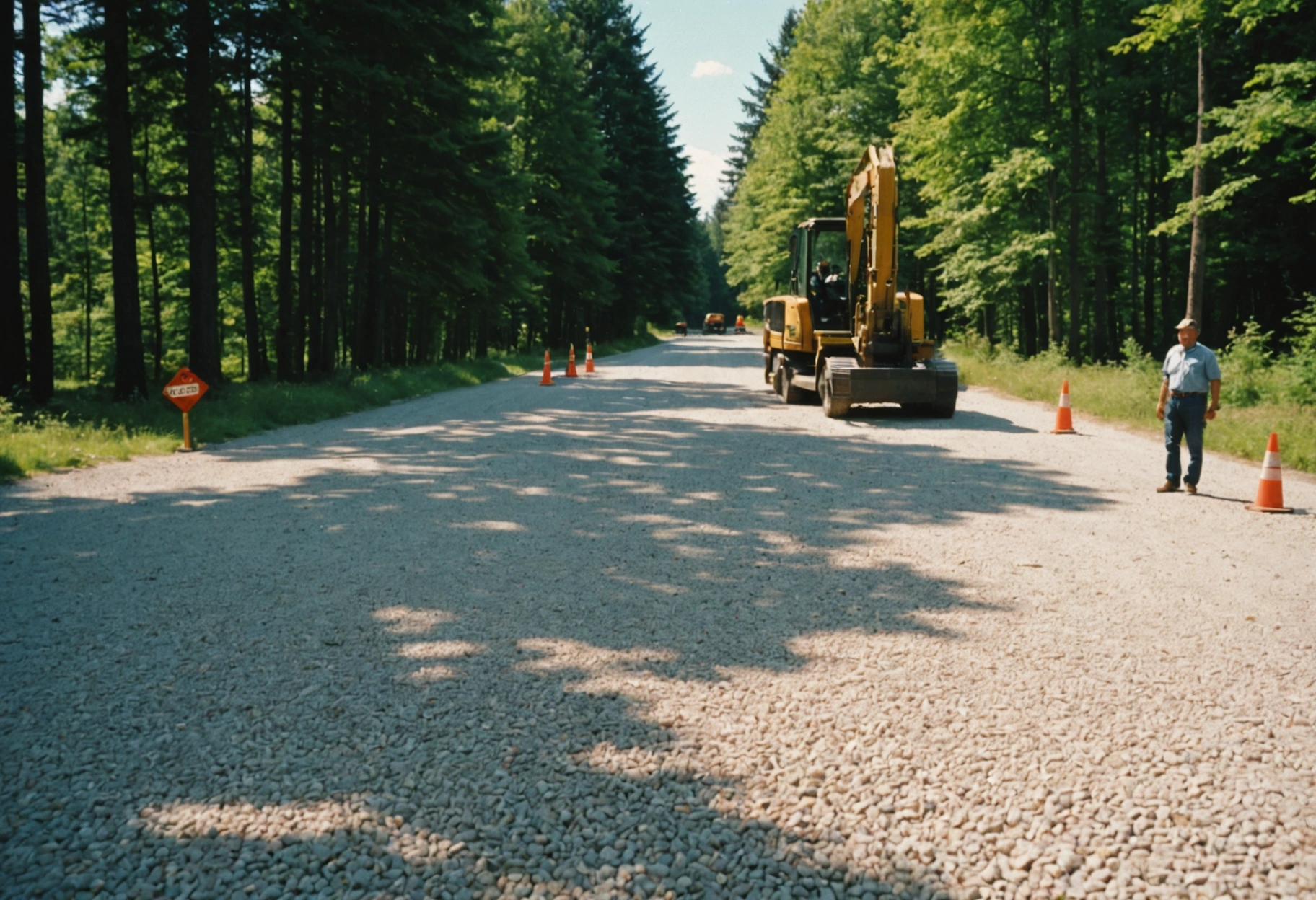
Where and how you place your storage container can have a significant impact on your experience. Proper planning ensures easy access, compliance with regulations, and a smooth delivery process.
Site Preparation
Ensure the ground is level, firm, and free from obstructions. Gravel, asphalt, or concrete pads are ideal surfaces, as they provide stability and reduce the risk of sinking or shifting. Check that there is enough clearance for delivery trucks to maneuver the container into place.
Accessibility Considerations
Think about how often you’ll need to access the container and what you’ll be storing. Place the container close to your workspace or loading area, and consider models with double doors for easier access to items at both ends. If space is tight, ask your rental provider about side-opening containers.
Permits and Regulations
Depending on your local jurisdiction, you may need a permit to place a storage container on private or public property. HOA rules, city ordinances, and zoning laws can all affect where and how long you can keep a container. For more information on legal considerations, review this comprehensive article on permits for storage containers in residential areas.
Choosing a Reliable Storage Container Rental Company
Selecting the right rental provider is just as important as choosing the container itself. A reputable company ensures transparency, quality, and customer support throughout your rental experience.
Key Qualities to Look For
- Transparent Pricing: Look for providers with clear rental rates and no hidden fees. Ask for quotes that include delivery, pickup, and any additional services.
- Wide Selection: A good company should offer a range of container types and sizes to fit your needs.
- Customer Service: Responsive, knowledgeable staff make the rental process smooth and address any concerns quickly.
- Delivery and Pickup Flexibility: Confirm that the provider can deliver and retrieve the container on your preferred schedule.
Reading Reviews and Testimonials
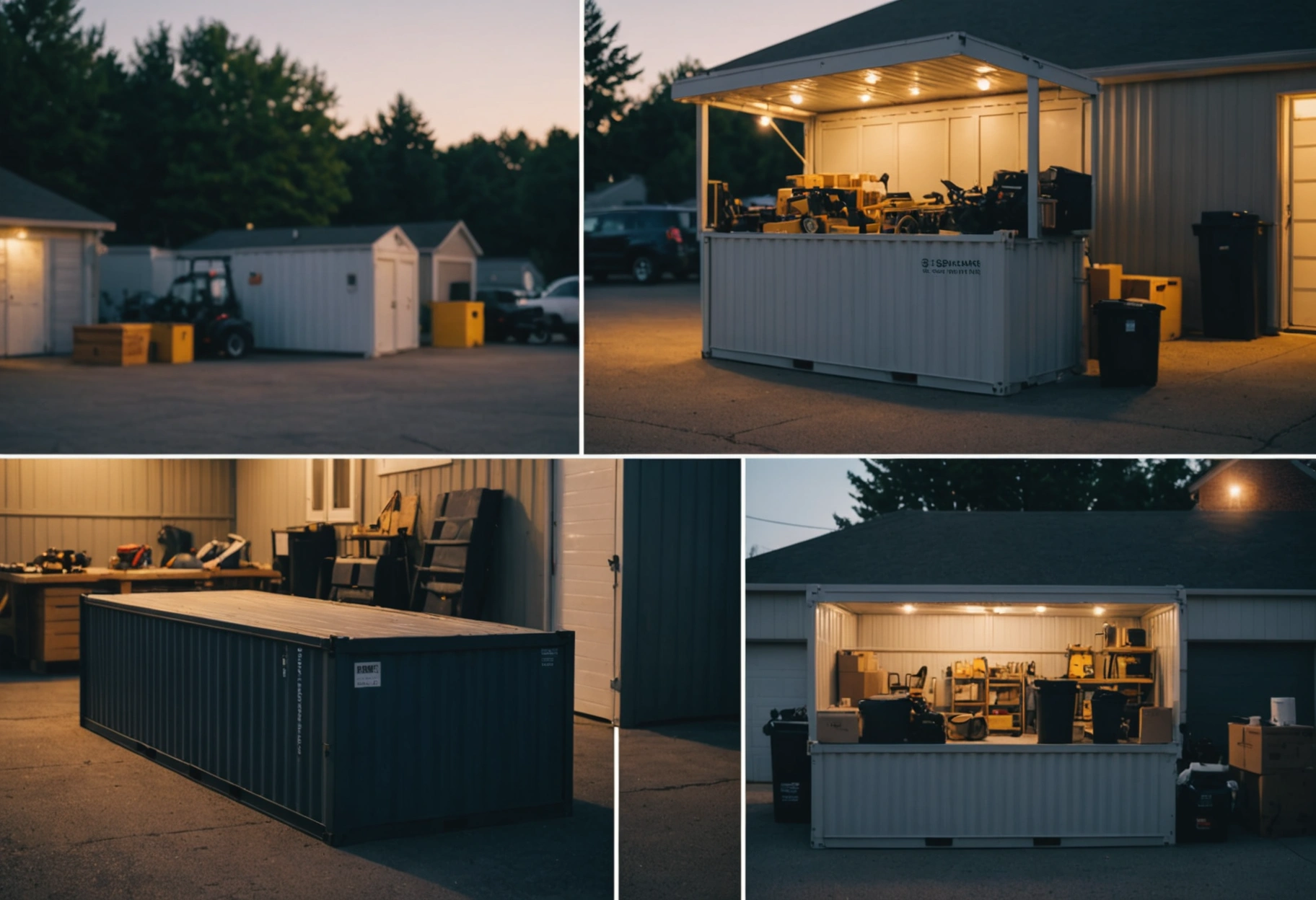
Scour online reviews and testimonials to gauge the experiences of other customers. Pay close attention to comments about delivery punctuality, container condition, and customer support. For examples of well-reviewed companies and what to look for, visit this resource on portable storage rental reviews.
Common Uses for Rental Storage Containers
The versatility of storage containers means they’re used in a variety of settings, both residential and commercial. Here are some of the most popular applications:
Residential Uses
- Moving: Portable containers simplify the moving process, offering a secure place to store and transport household goods at your pace.
- Renovations: Keep furniture and valuables safe and out of the way during home improvement projects.
- Decluttering: Use a rental container to store seasonal items, sports equipment, or family heirlooms and free up space in your home.
Commercial and Industrial Uses
- Construction Sites: Secure storage for tools, equipment, and materials directly on-site.
- Retail and Inventory: Temporary overflow storage for seasonal inventory or during store renovations.
- Event Planning: Store event materials, staging equipment, or supplies close to the venue for easy access.
Specialty Uses
- Mobile Offices: On construction sites, festivals, or disaster recovery zones, office containers provide essential workspace.
- Emergency Response: Store relief supplies, medical equipment, or food in secure, mobile containers during emergencies.
- Farming and Agriculture: Protecting feed, machinery, and harvested crops from weather and pests.
Cost Factors and Budgeting Tips
Understanding the costs associated with renting a storage container helps you budget effectively and avoid surprises. Several factors influence the price, from container size and type to rental duration and delivery distance.

What Influences Cost?
- Size and Type: Larger and specialty containers (like refrigerated or office units) typically cost more than standard sizes.
- Rental Duration: Monthly rates are common, but longer-term rentals may qualify for discounts.
- Delivery and Pickup Fees: Charges vary based on your location and distance from the provider’s depot.
- Additional Features: Security upgrades, shelving, lighting, and insurance may add to your total.
To get the best deal, compare quotes from multiple providers and ask about promotions or package deals. Also, check whether insurance is included or if you need to purchase separate coverage for your items.
For an in-depth breakdown of costs, see this guide on what affects portable storage container pricing.
Maximizing the Value of Your Rental Storage Container
Once you’ve selected and received your storage container, a few best practices can help you make the most of your rental:
- Organize Efficiently: Use shelves and stackable bins to maximize space and keep items accessible.
- Label Everything: Clearly label boxes and bins to locate items quickly when you need them.
- Protect Against Moisture: Use pallets to keep items off the floor and moisture absorbers to reduce humidity if storing sensitive goods.
- Maintain Security: Check locks and seals regularly, and consider installing lighting or surveillance if the container is in a remote area.
- Keep Pathways Clear: Leave space to move inside the container, especially if you’ll access items frequently.
Making the Right Choice for Your Storage Needs
Rental storage containers provide a flexible, secure, and cost-effective way to solve a wide range of storage challenges. By carefully considering your requirements—from container type and size to security features, accessibility, and provider reputation—you can ensure a hassle-free experience and protect your valuable items.
Whether you’re storing household goods during a move, securing tools on a job site, or managing inventory for your business, the right storage container can make all the difference. For further reading on creative ways storage containers are used worldwide, explore this fascinating article on innovative shipping container architecture.
Take the time to research, ask questions, and plan ahead. By following the guidance in this comprehensive guide, you’ll be well on your way to choosing the perfect rental storage container for your needs—and enjoying the peace of mind that comes with knowing your belongings are safe, secure, and accessible whenever you need them.
Need help with The Comprehensive Guide to Choosing the Right Rental Storage Container for Your Needs?


